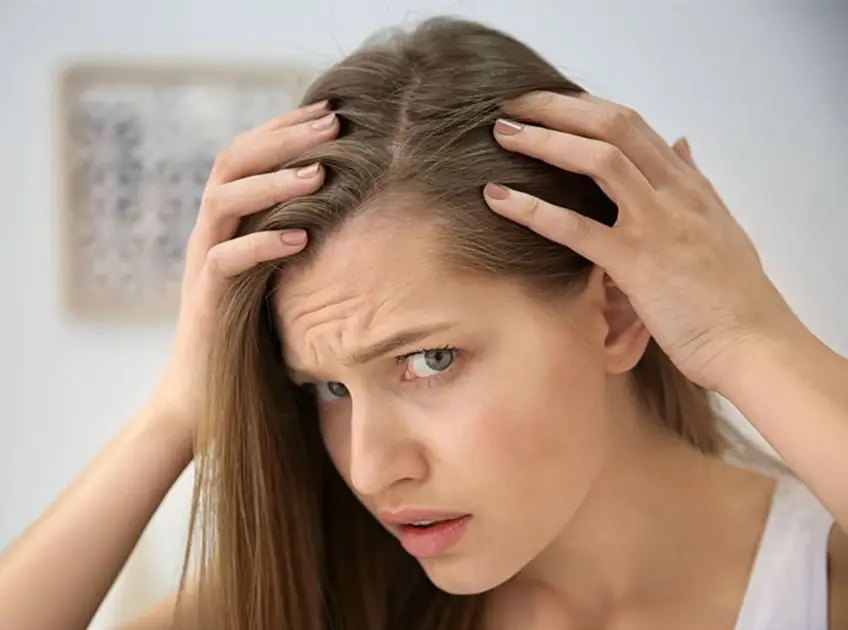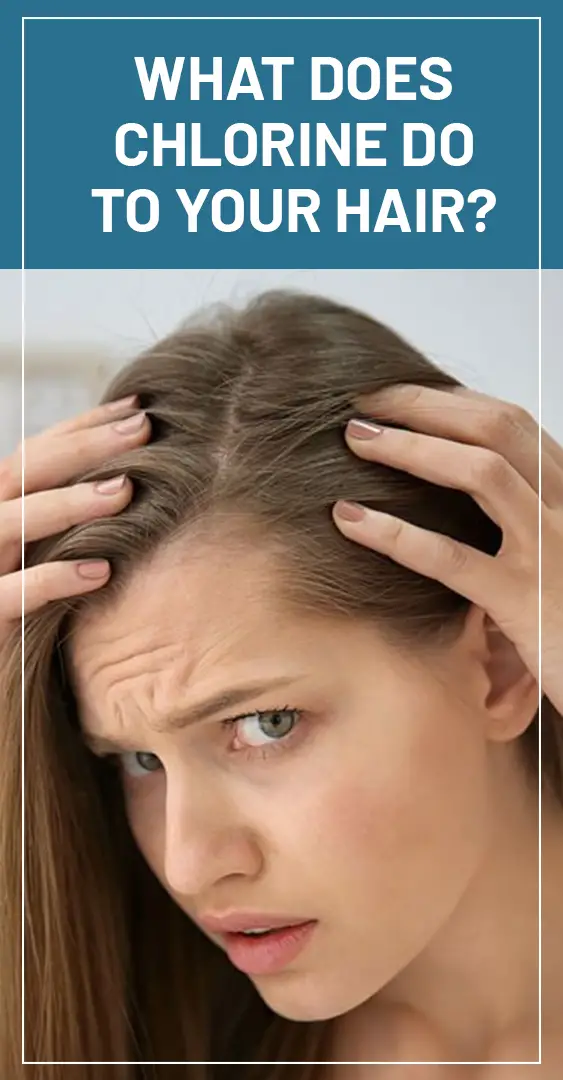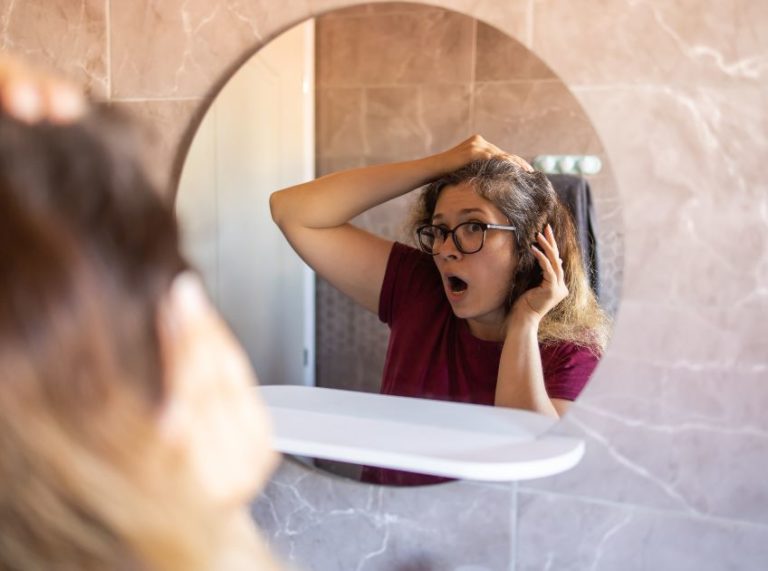
Important: This article is for informational purposes only. Please read our full disclaimer for more details.
If you are a frequent swimmer, you may probably know that chlorine water can seriously affect your hair. But you cannot avoid it in a swimming pool, because it is great for wiping out some harmful bacteria and also keeping pool water clear.
Did you know that some tap water that you are using also contains chlorine? If you take regular showers in water that has a high content of chlorine, it may irritate or cause damage to the scalp and hair.
Curious about what chlorine can do to your hair? Scroll down to know the tips on how to protect and reduce damage.
Article Contains
- Aware Of How Chlorine Is Affecting Your Hair?
- Guidance To Protect The Hair From Chlorine Damage
- Don’t Forget To Wet Your Hair Before And Also After Swimming
- Make Use Of Oils
- Go For The Swim Spray Option
- Try To Take Gentle Shampoos
- Go Along With A Swim Cap
- Change Your Hairstyle
- Choose An Outdoor Pools
- Follow Post-swim Hair Care Routines
- Bottom line
Aware Of How Chlorine Is Affecting Your Hair?
Chlorine sucks the natural oils present in the skin and hair, leaving than rough, dry, and damaged. Your hair requires certain oil to retain its smoothness and health but chlorine removes those oils.
Chlorine can cause a chemical reaction in the hair which may lead to changing the natural color of the hair, causing split ends and weakening each hair strand.
People with specific hair can easily affect due to chlorine damage than others. It includes,
- Those who have color-treated hair
- People with Dry hair
- Fine or thin hair
- Who have bleached their hair
- Chemical treated hair
- Hair with existing damage
Guidance To Protect The Hair From Chlorine Damage
Here are some top tips to prevent hair from chlorine. You should remember the upcoming steps when you are in a situation to use chlorine water.
1. Don’t Forget To Wet Your Hair Before And Also After Swimming
Most pool staff will insist you take shower before going to the pool, you may have to think why so, there is a reason behind it. Doing this will remove any dirt and oils from the body so that it won’t settle at the bottom of the pool.
Meanwhile, it also helps to protect against chlorine damage to the hair. Do you know how? When pre-soaking the hair with clean water before the pool, your hair strands can absorb the water and decrease the amount of chlorine that is absorbed.
Likewise, it is a good one to rinse the hair completely with clean water after swimming. To get a deep clean, you can also use some clarifying shampoo.
2. Make Use Of Oils
If you have the habit of going swimming pool often and experience heavy hair damage, consider having a leave-in chlorine protectant on the hair.
You can go for natural oil like olive oil, coconut oil, and jojoba act as a protective layer to safeguard chlorine as well as other pool chemical from being absorbed into the hair strands.
If you want added protection, have a deep conditioning mask or use leave-in -conditioner
3. Go For The Swim Spray Option
In case you are having blond hair and are worried about the effects of chlorine on light-colored hair, purchasing a swim spray product is a great option to apply on the hair.
It helps to block chlorine from penetrating the strands and also this product works very well for all hair types.
4. Try To Take Gentle Shampoos
It’s highly recommended to use gentle along with sulfate-free shampoo followed with the conditioner after swimming. These thing assists wash away any remnants of chlorine from the hair.
5. Go Along With A Swim Cap
When you are a competitive swimmer, you may already know how great to wear a swim cap in the swimming pool. Swim caps are very best to protect chlorine from reaching the hair in the first place.
In order to get high protection, keep your all hair inside the cap, so that chlorine will not touch your hair.
Make sure that you are wearing a cap over wet hair which helps to fit easier over the head. Keeping a couple of swim caps is a good idea in case of one cap gets damaged.
7. Change Your Hairstyle
If you have long hair but don’t have a swim cap, tie the hair back in a braid, ponytail, or tight bun. This hairstyle will reduce the contact with chlorine and helps to have less damage.
8. Choose An Outdoor Pools
Swimming in outdoor pools is great because chlorine gas from the water will evaporate into the air faster and decrease the concentration in the water.
Importantly, the amount of chlorine absorbed by hair also will be reduced to a lower point.
9. Follow Post-swim Hair Care Routines
The most essential time to protect chlorine-damaged hair is at the time of exiting the water. The post-swim shower as well as the hair care routine will assist remove the chlorine before it enters deeply into the strands.
After swimming, rinse the hair thoroughly with non-chlorinated water or clean water and wash with clarifying shampoo, then apply a leave-in conditioner.
Stay still for a few minutes to get dry completely. If your hair needs additional drying use a towel to dry excess water from the hair gently.
Bottom line
If you can, try to reduce going often for the swimming pool in chlorine water, which is not good for your hair. And also be sure to invest in some quality products in order to keep the tresses safe.
You Might Also Like:
- 7 Best Barrier Cream For Swimming
- 5 Best Homemade Hair Conditioners – Benefits + How to Use?
- How To Improve Your Hair Texture Naturally?
- Damaged Hair – Causes, Home Remedies & Precautions
- How to Detox Your Scalp for Healthy Hair at Home?
- Onion Juice For Hair: Benefits & How to Use
















